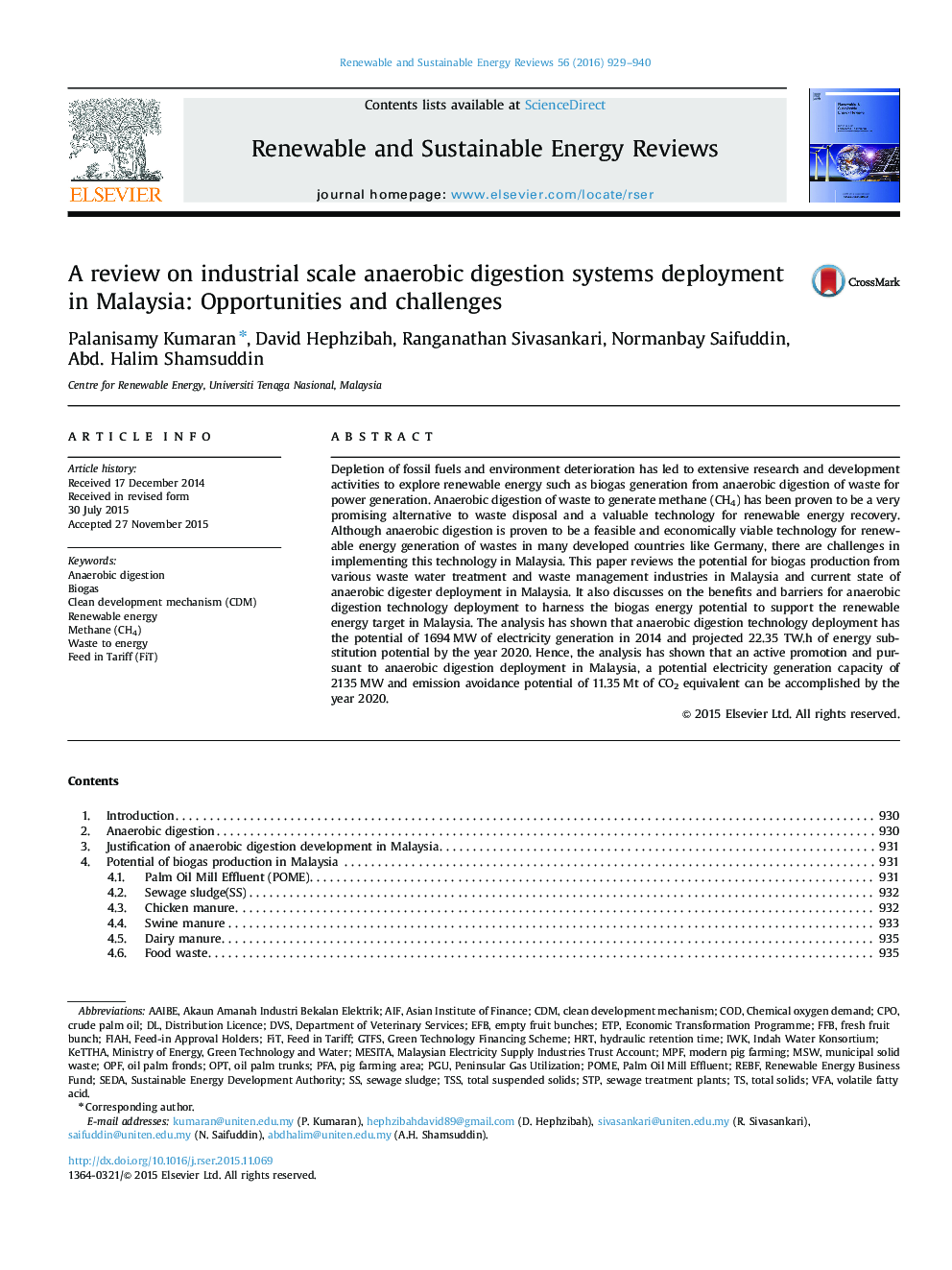| Article ID | Journal | Published Year | Pages | File Type |
|---|---|---|---|---|
| 8114901 | Renewable and Sustainable Energy Reviews | 2016 | 12 Pages |
Abstract
Depletion of fossil fuels and environment deterioration has led to extensive research and development activities to explore renewable energy such as biogas generation from anaerobic digestion of waste for power generation. Anaerobic digestion of waste to generate methane (CH4) has been proven to be a very promising alternative to waste disposal and a valuable technology for renewable energy recovery. Although anaerobic digestion is proven to be a feasible and economically viable technology for renewable energy generation of wastes in many developed countries like Germany, there are challenges in implementing this technology in Malaysia. This paper reviews the potential for biogas production from various waste water treatment and waste management industries in Malaysia and current state of anaerobic digester deployment in Malaysia. It also discusses on the benefits and barriers for anaerobic digestion technology deployment to harness the biogas energy potential to support the renewable energy target in Malaysia. The analysis has shown that anaerobic digestion technology deployment has the potential of 1694Â MW of electricity generation in 2014 and projected 22.35 TW.h of energy substitution potential by the year 2020. Hence, the analysis has shown that an active promotion and pursuant to anaerobic digestion deployment in Malaysia, a potential electricity generation capacity of 2135Â MW and emission avoidance potential of 11.35Â Mt of CO2 equivalent can be accomplished by the year 2020.
Keywords
MPFPguFeed in Tariff (FIT)FFBGTFSOPFPFAETPOPTCPOCDMDVSHRTMSWEFBTSSVFASTPSedaAIFRenewable energyBiogaschemical oxygen demandEmpty fruit bunchesTotal solidsFeed in tariffcrude palm oilOil palm frondswaste to energyMunicipal solid wastehydraulic retention timePalm oil mill effluentSewage sludgeMethane (CH4)total suspended solidsFITClean Development MechanismClean Development Mechanism (CDM)Anaerobic digestionPOMECodSewage treatment plants
Related Topics
Physical Sciences and Engineering
Energy
Renewable Energy, Sustainability and the Environment
Authors
Palanisamy Kumaran, David Hephzibah, Ranganathan Sivasankari, Normanbay Saifuddin, Abd. Halim Shamsuddin,
